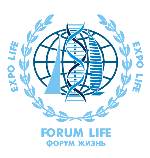Antibiotic resistance: why bacteria are becoming more resilient
Antibiotics for a long time have been a universal way for the rescue of a person from infection, but in time it has become a struggle between physicians and bacteria that eventually have become resistant to most drugs. Today we will talk about the way superbugs resistant to everything appear and what threat it brings in the near future.
Antibiotic resistance was discovered in many different species of bacteria that cause pneumonia, sexual diseases and even food poisoning. Germs rapidly mutate, becoming resistive to specific drugs, or include in their own structure the resistance genes attributed to other types. Bacterium is a kind of biological designer and during the merger of two different strains it can borrow from each other those genes that allow them to survive in a hostile environment. That is why very often the opposition of physicians and the infection has a wave nature: after the invention of a more powerful drug, it is possible to suppress outbreaks for some time. Then the bacteria mutate, become immune to medicine, and scientists have to search for new means of exposure.
At present time, the latest generation of antibiotics (e.g. colistin and carbapenem class, beta-lactam antibiotics of broad spectrum) is gradually becoming useless. In 2015 in China was discovered the bacteria possessing the resistive MCR-1 gene, whose DNA was integrated into the plasmid (special bacterial formation), and therefore could be transmitted from one species to another.
However, even if a strain gets resistance towards the powerful and most modern drug, it does not mean that older drugs would be powerless against him. Bacteria rarely have an ultimate, absolute protection for all medicines, although over the past year, scientists had sufficient reasons to believe that soon such superbugs can multiply and cause another epidemic.
It is difficult to predict how the situation will change in the next few years. Now long-term forecasts look pretty grim. If decisive measures for the development of a new generation of drugs do not undertake, by 2050, even a minor infection can become a serious threat. Diseases like gonorrhea or tuberculosis suddenly will become incurable. Of course, scientists track the trends of genetic mutations of virulent strains and spend a significant amount of time and resources on identification of potentially dangerous bacteria. On the part of inhabitants will be a good preventive measure even banal observance of rules of elementary hygiene. Besides, we should limit the widespread use of antibiotics, especially in the agricultural environment, pharmaceutical companies should develop alternative methods of treatment. Anyway, experts believe that it is impossible to solve the problem of antibiotic resistance in the near future. That means that for the next 10-15 years there is a very important field of work in medicine.
Call us +7 (495) 968-82-80 and find out the details.
We are always glad to your address!
